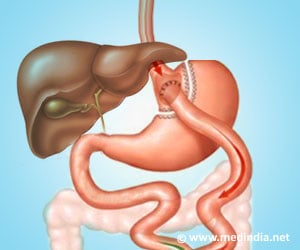- New guidelines for treating obesity in kids include drugs and surgery
- This aggressive step has been taken as the rates of obesity have increased from 17% to 20% over the past ten years
- FDA approves WEGOVY a new anti-obesity drug to treat children over 12 years of age
Read More..
Childhood Obesity: Alarming Facts
Obesity is a condition where the Body Mass Index (BMI) of children is greater than or equal to the 95 percentile of kids of the same gender and age. If it is greater than or equal to the 120 percentile, then they are classified as severely obese.Almost 20% of Americans as well as Indian teenagers are suffering from obesity according to a recent survey by CDC Centre for Disease Control and Prevention. Approximately 15 million children are suffering from this pandemic (3✔ ✔Trusted Source
Childhood Obesity Facts
Go to source).
Obesity is a risk factor for many diseases, including diabetes, heart disease, and high blood pressure. It is also associated with an increased risk of dying in the following 10-year period. In addition, obesity is a risk factor for other conditions, such as sleep apnea and fertility problems. The risks of obesity are most significant for people who are obese as children and teens.
There are serious mental health issues like low self-esteem, feelings of isolation from the peer group, depression, and eating disorders.
Obesity is not a lifestyle disease anymore. It has several factors that contribute to it. They might include biological, environmental, genetic, and metabolic interactions.
Childhood Obesity Treatment Guidelines
AAP recommends lifestyle and behavioral changes as the primary stay of treatment for ages 6 years and up and in some cases (2 and 5 years) . But it is only effective when there are approximately 26 hours of face-to-face counseling sessions over the course of a year.For ages 12 years and up, AAP has recommended the usage of anti-obesity drugs that were researched and approved over the past few years along with lifestyle modifications. For ages above 13 years and older, bariatric surgery (weight loss surgery) has been approved along with diet and exercise. Bariatric surgery is found to be safe and effective with lasting results.
What are New Anti-Obesity Drugs that are Approved?
Four drugs are approved for this purpose they are Xenical (Brand name Orlistat), Liraglutide (Saxenda), Phentermine-Topiramate (Qsymia), and Semaglutide (Wegovy) for teens who are 12 years and older. Phentermine has been approved for the age of 16 years and older (1✔ ✔Trusted SourceThe clinical treatment of childhood obesity
Go to source,2✔ ✔Trusted Source
Treatment of Pediatric Obesity: An Umbrella Systematic Review
Go to source).
For children of age six years and above who have Bardet-Biedl syndrome (BBS) , a new drug called Setmelanotide has been approved. Bardet-Biedl syndrome (BBS) is a genetic disorder with obesity as one of the major phenotypic criterion.
Wegovy, a drug that was popular among adults previously is now approved by the Food and Drug Administration for children.
New England Journal of Medicine states that a weekly injection of Wegovy along with a healthy diet and exercise can cut about 12% of the weight compared to other placebo treatments in the same age group (4✔ ✔Trusted Source
Semaglutide 2.4-mg injection as a novel approach for chronic weight management
Go to source).
In the words of Dr. Sandra Hassink, medical director of AAP and co-author of the new guidelines "We now have evidence that obesity therapy is effective. There is treatment, and now is the time to recognize that obesity is a chronic disease and should be addressed as we address other chronic diseases.”
The problem with this is, insurance policies aren't available yet for these drugs, and the cost is around 1300 dollars for a single injection, which is almost unaffordable for low-income family groups.
What can be the Potential Side Effects of Anti-Obesity Drugs?
- Setmelanotide can cause depression, unwanted sexual reactions, nausea, vomiting, and stomachache.
- Qsymia can cause increased blood pressure, constipation, nervousness, and fatigue.
- Wegovy has potentially lesser side effects. They include nausea, vomiting, and others.
- Rare cases of liver injury have been reported with Orlistat. Saxenda has almost no reported serious complications.
Emphasis on the holistic approach
Lead researcher Dr. Sandra Hassink says that drugs and surgery should be used only in special circumstances, where consistent efforts at lifestyle and diet changes failed to have any effect. To maintain and continue the results of the drugs, healthy diet and lifestyle choices are a must.
The drugs may not be available for all because of cost. It may take some more time for policy changes and availability.
References:
- The clinical treatment of childhood obesity - (https://pubmed.ncbi.nlm.nih.gov/22669690/)
- Treatment of Pediatric Obesity: An Umbrella Systematic Review - (https://pubmed.ncbi.nlm.nih.gov/28359101/)
- Childhood Obesity Facts - (https://www.cdc.gov/obesity/data/childhood.html)
- Semaglutide 2.4-mg injection as a novel approach for chronic weight management - (https://pubmed.ncbi.nlm.nih.gov/36525677/)
Source-Medindia















